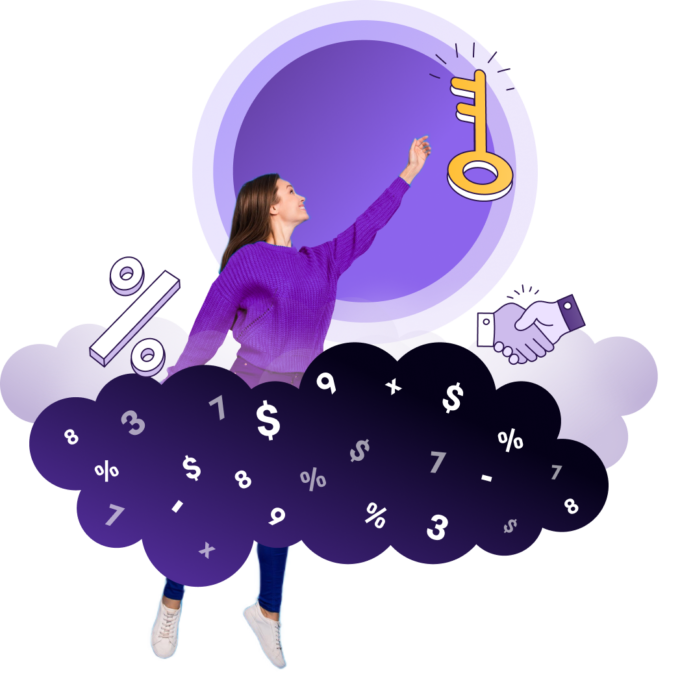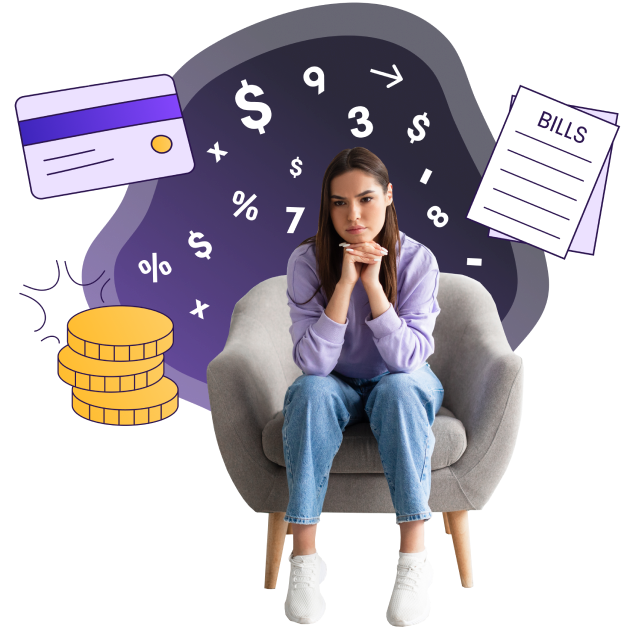Reset your debt with bankruptcy
An option for a fresh start from unmanageable debt.
What is bankruptcy?
Personal bankruptcy is a debt solution under the Canadian Bankruptcy and Insolvency Act. This option allows you to clear almost all your debt, such as income tax debt, credit cards, overdue utility bills, lines of credit, and loans.

What should you consider before filing for bankruptcy?
While bankruptcy grants you immediate protection from creditors, it may affect your assets and credit rating, and you’ll still be required to pay some debt.
Advantages
-
All interest payments stop
-
Some assets, such as your home and car, may be protected depending on your province
-
Most debt is cleared
-
In some cases, your student loan debt can be included
Considerations
-
All non-exempt assets must be turned over to your trustee
-
Your credit cards will be cancelled
-
Your credit rating will be affected for six or seven years, depending on your province
-
You'll be required to pay child or spousal support, court-imposed fines, and, in some cases, student loans.
-
You'll be required to submit monthly financial statements and make monthly payments to your trustee.

Should I file for bankruptcy?
Bankruptcy can be an ideal solution for individuals who:
-
Are struggling to meet their financial obligations
-
Have reviewed all other options for dealing with debt
-
Are dealing with debt collectors or having their wages garnished
How do I file for bankruptcy?
Only a Licensed Insolvency Trustee (LIT) can administer bankruptcies, which are regulated by the “Bankruptcy and Insolvency Act” of Canada. If your LIT determines that bankruptcy is the appropriate solution for your financial situation, you will work together to complete your application.


Consumer proposal: an alternative to bankruptcy
Get your finances back on track without going bankrupt. A consumer proposal gives creditors a reasonable repayment and you, a financial fresh start.
-
The amount you pay is determined by what you can afford.
-
You’ll likely only repay a portion of what you owe.
-
In most cases, you will keep all your assets, including your car, home, and RRSPs.
-
There is a lesser impact on your credit rating compared to bankruptcy.
Debt happens more than you think
We’re helping Canadians take control of their finances and live happier, debt-free lives.
Take the first step to debt freedom
Speak to one of our debt solutions professionals during a free, no-obligation consultation.
Your questions answered
The assets you can keep in bankruptcy are based on the province in which you reside. Generally, pensions and RRSPs are exempt in all provinces. Other potential exempt assets are equity in your home (up to a certain amount), a vehicle (up to a certain amount), tools of the trade, household furnishings and medical aids. To learn more about what assets are exempt in your province, talk with one of our debt professionals during a free consultation.
If you complete your duties and payments in a timely manner and no creditors object to your discharge, you’re eligible for an automatic discharge from bankruptcy at:
1st time bankruptcy:
- Nine months or 21 months if there is surplus income to pay
2nd time bankruptcy:
- 24 months or 36 months if there is surplus income to pay
If you have high-income tax debt or a creditor opposes your discharge, you may have to go to court to be discharged from bankruptcy.
Unless you have co-signed or taken on debt together (like a car or mortgage), your spouse will not be affected by your bankruptcy.
If they have co-signed for a debt included in your bankruptcy, they are responsible for paying it. If you jointly own assets, there are options for paying out your share so that, in some cases, your spouse can retain the asset.
Loading
